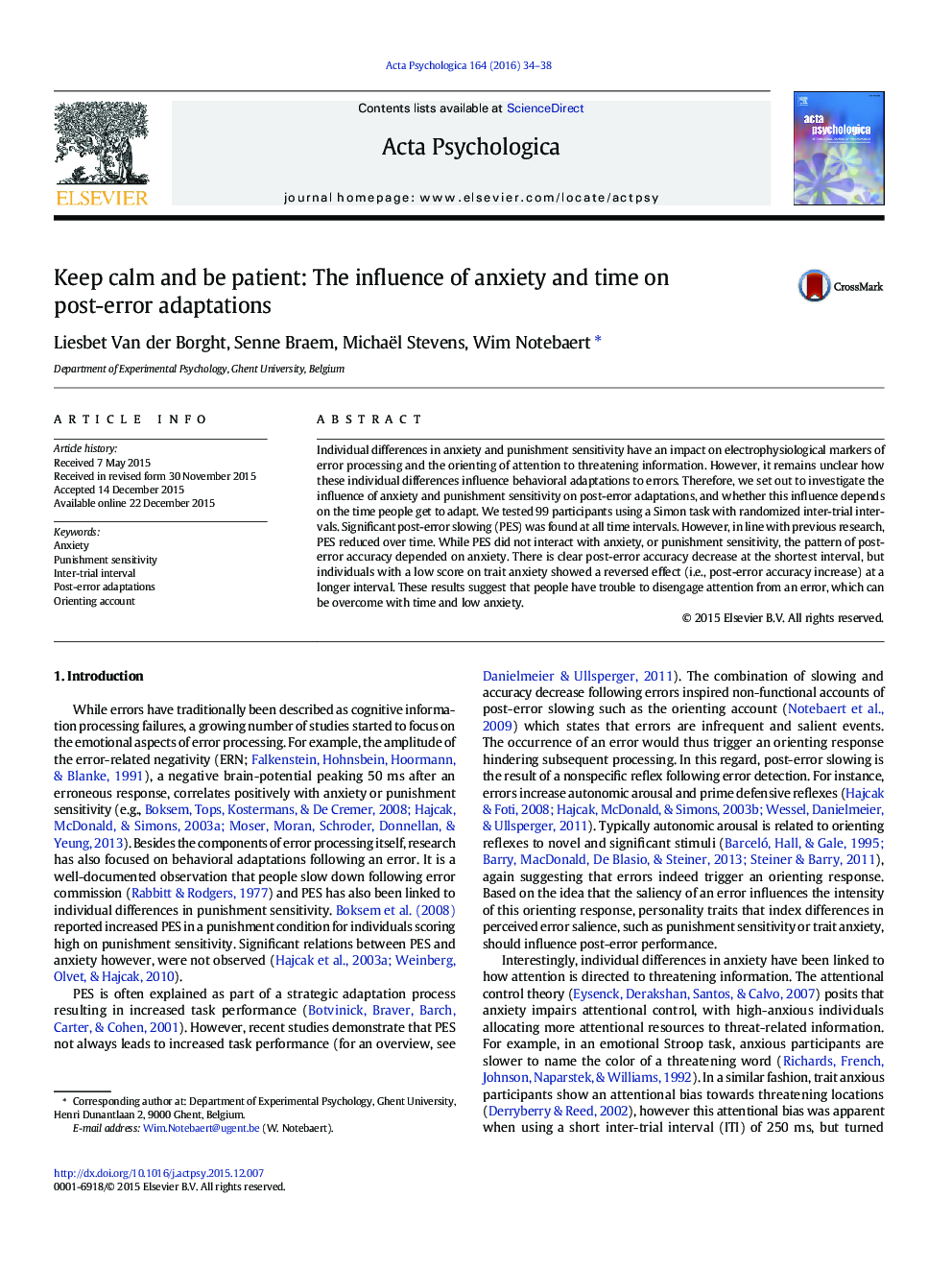| Article ID | Journal | Published Year | Pages | File Type |
|---|---|---|---|---|
| 919654 | Acta Psychologica | 2016 | 5 Pages |
Abstract
Individual differences in anxiety and punishment sensitivity have an impact on electrophysiological markers of error processing and the orienting of attention to threatening information. However, it remains unclear how these individual differences influence behavioral adaptations to errors. Therefore, we set out to investigate the influence of anxiety and punishment sensitivity on post-error adaptations, and whether this influence depends on the time people get to adapt. We tested 99 participants using a Simon task with randomized inter-trial intervals. Significant post-error slowing (PES) was found at all time intervals. However, in line with previous research, PES reduced over time. While PES did not interact with anxiety, or punishment sensitivity, the pattern of post-error accuracy depended on anxiety. There is clear post-error accuracy decrease at the shortest interval, but individuals with a low score on trait anxiety showed a reversed effect (i.e., post-error accuracy increase) at a longer interval. These results suggest that people have trouble to disengage attention from an error, which can be overcome with time and low anxiety.
Related Topics
Life Sciences
Neuroscience
Cognitive Neuroscience
Authors
Liesbet Van der Borght, Senne Braem, Michaël Stevens, Wim Notebaert,
